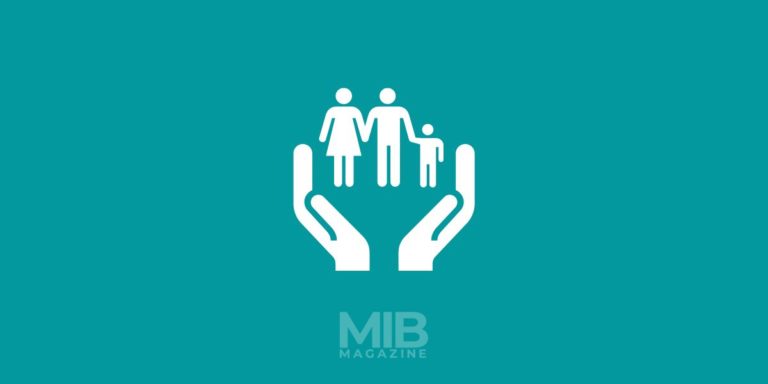Step-by-Step Guide to Starting a Business in the Netherlands as a Foreigner

The Netherlands is a country located in Northwestern Europe with its capital Amsterdam. The country holds important place in EU and its cities are world known for housing important institutions like the International Court of Justice that is located in The Hague.
Netherland follows mixed economy that makes it 13thlargest country in terms of per capita income. Known to be one of the most prosperous countries in the world, Netherland ranks in the top place when it comes to press freedom, human development, economic freedom and quality of life.
The country is known to be very liberal as it supports same sex marriage since 2001, has abolished capital punishment and legalized abortion. In terms of economy, Netherlands holds a very distinct place in EU.
The global innovative index ranked Netherlands as the third most innovative nation. It ranks at 10thspot with highest GDP (nominal) while it has the 17thlargest economy in the world. Overall, the country follows a very liberal rule for business and economic prosperity which makes it viable for investment and business.
So if you are planning to invest or start a business in Netherlands as a foreigner then read down the below content to get a glimpse of how you can start your business.
Starting with Getting your Visa:
To start a business in Netherlands as a foreigner you need to get a working or business visa. The step to obtain a visa starts with applying for it with due documents as asked. The EEA and Swiss nationals do not require any working visa for opening a business thus only those who do not belong to this category needs to apply for it. There are several ways of obtaining visa which is mentioned below:
- Foreigners who want to stay in Netherlands for more than three months for business needs should apply to the Dutch embassy or consulate for provisional residence permit and also a residence permit at the same time.
- Ambitious Entrepreneurs who want to go for startup may apply for one year residential visa program. For this one needs to fulfil the basic criteria for visa which includes a business plan, amount of capital investment, etc. The whole plan and necessary documents will be accessed by the Netherlands Enterprise Agency that will then reject or accept based on the merit of the application.
- People who intent to work in Netherlands as an employee for more than three months need to apply for GVVA which is paid employment single permit. In this, they can work for around 3 months in country for visa but they need to separately apply for residential visa. Students and asylum seekers require work permit.
- Foreign nationals who wish to obtain residential visa need to fulfill some additional conditions that includes an investment of euro 1.25 million in a Dutch company and an obvious additional value to the Dutch economy. More conditions are provided here.
Both the permits are approved by the Dutch Immigration and Naturalisation Service therefore one needs to visit their website and contact them to know exactly what requires in your case.
The Difference between Provisional Residence Permit (MVV) and Residential Permit:
To apply for residential permit, you need to first apply for MVV. MMV is the first step towards entering Netherlands for working purpose. Both of the permits need to be applied during the same time. MVV grants you to stay for 90 days. In some cases you may not require MVV.
Other General Info:
To apply for permits you need to spend some money on documentations as well as permit fees which depends on country to country which you may check. In case you want to stay in the country for more than 3 months then you need to register yourself to the nearest municipality of your place. You should deregister yourself in case you leave the place for more than 8 months.
Various Starting Business Ventures:
You may be starting your business as a startup or you may be shifting your business to Netherlands. You may be working as an employee or may be just investing in a business. All have different criteria and thus you need to be vigilant. Here are few of them:
- Starting as an innovative startup
- Bringing your business to Netherlands
- Starting while holding down a job
- Starting while on unemployment benefit
- Starting as a student entrepreneur
- Starting your business as a minor
All of the above circumstance have different approach in starting a business. You can read the details from the links attested.
Select a Legal Structure of your Business
You need to select the legal structure of your business. This means that you need to start a company as a proprietorship, partnership, limited liability company, private limited, joint venture, foundation, cooperative, association, professional partnership, etc. If you are in a dilemma in choosing the best possible legal structure of your company, then refer to this.
Starting your Business and Legal work:
If you gone through the above given conditions and have fulfilled all of them then now the time has come to start your business by giving it a name. This name needs to be unique and should satisfy the norms of business.
You also need to get a trademark of your business in order to make it more professional. Other business formalities include getting your brand name and logo registered. Insure that you have all the intellectual property rights of your business with you.
Next step is registration of your business which should be done at Dutch Commercial Register at the Chamber of Commerce.You will get your VAT number from here and you don’t need to apply separately from here.
If you are going to hire staff for your business then you also need to register yourself at register as an employer.
Taxation in Netherlands:
There are few taxes that you need to pay while running your business in the country. They are:
- VAT or BTW
- Income Tax
- Payroll Tax
- Corporate Tax
Value Added Tax: Vat is generally applied for the selling of goods and services. Around 21% is charged on the commodities and the tax is collected four times a year by the tax department.
Income Tax: Income tax is paid on the amount you have earned as income. It is paid on yearly basis based on your income. To get some exemption you need to prove certain grounds that also includes of you being an entrepreneur.
Payroll Tax: It is levied when you have hired employees to your business. Payroll tax will be deducted from the employee’s salary which you pay and is used in general insurance and pension contribution.
Corporate Tax: If your business is incorporated like NV and BV then you need to pay corporate tax as well.
Other Aspects of Setting up a Business:
There are many other important criteria that needs to be fulfilled before you start your business. This includes taking up permission for setting up your business from the local authority. In case of businesses that require some type of manufacturing, special permission needs to be taken that includes permission from the environment authority. Some other aspects of business also includes:
Getting a Competent Legal Advisor:
Opening business is quite easy in Netherlands yet you need some good legal advice in order to establish your business without any glitches. Since you are new to this place because of being a foreigner thus you need some good assistance from a person who is well versed with the local conditions of the country especially the legal aspect.
Drafting of your memo, writing special permission applications, getting license and many more, in all such cases a legal assistance is necessary and therefore you need to hire a legal advisor for your rescue.
Business Advisor:
Similarly, you also need a business advisor who is going to help you in many ways. Right from writing down your business plan to ensuring that it gets approved for visa, to helping you know various aspects of doing business in Netherlands to helping you know more about small things in your business, you definitely need an advisor at your rescue.
While doing business in Netherlands you will also require good contacts while dealing with your business. For that as well you need an advisor who will help you in taking correct decisions.
What makes the Netherlands Special for Business?
Netherlands is known to be a liberal economy that follows the free market economy policy with some general regulation. The country’s business policy is drafted in a manner that attracts investors from outside to invest in the country.
It also has great connectivity to the world which makes it viable for foreign investors to visit the country. Even the domestic connectivity is well chained to promote business. Since the country is a developed one, you won’t have any issues related to infrastructure.
The infra of the country is world class which adds another feather for the country to be pro-business. The low corporate tax also is another reason why investors rally to Netherlands for investment.
The major reason why Netherlands is a pro-business country is because the government to helps some promising startups and businesses to grow by various means. Offering financial support to tech support and many more, the government takes major initiatives to ensure that the country does well in innovation and businesses related to innovation.
The rate for taking from bank is also quite less which makes taking loan easy and risk free. The insolvency mechanism for a business is also quite easy which makes doing business in the country a easy job.
Frequently Asked Questions:
What are Some Basic Requirements for Startup Permit?
To get the consideration for a startup permit, one must do the following:
- They must have a service or product that is innovative in nature
- One must work with a well experienced and trusted mentor or facilitator who is based in the Netherlands
- They need to have a comprehensive plan with step by step planning on how to convert their plan into a successful business
- The entrepreneur must have sufficient financial support to stay for an year in the country
- The entrepreneur’ startup and the mentor, both need to get registered in the KVK
From where one can get the Application Form?
One can download the application form directly from the website of IND. Click here to view application form.
Where do I Have to submit my Application?
You need to submit your application to the Dutch Embassy located close to yours. You can also submit the application to the Dutch Consulate.
How Long Does it Takes to Approve your Application?
It takes not more than 90 days for your application to get approved if all the criteria is fulfilled. In case of startup visa it will take around 7 weeks in general which can extend as well. The government gives priority to startup businesses thus your application can be approved in shorter period as well.
Can the Mentor or Facilitator Apply on Behalf of the Investor?
In case of MVV, the applicant needs to be present in front of the embassy but in when it is not applied for MVV then the facilitator can apply given he has the consent of the applicant.
In Case the Application Gets Rejected. Can I Challenge the Decision?
Yes, you can challenge the decision of IND if you feel that your point is not considered.
Conclusion:
Running a business is never an easy job. Especially when you are into startup, lot of things are on stake which becomes quite risky. For this, one must get an insurance in order to avoid heavy loss to your business in case of failure.
Before you go into the business, prepare yourself very well for the business. Meet people who are already into your field of business and take help of advisors. Only when you are sure that your business can do well, you should invest your money. The Netherlands nourishes the businesses in the country very well which will help you to grow. Take all the opportunities coming at your bay and reap the fruits of success.
FAQS
Setting up a business in the Netherlands is a straightforward process that is often completed within a few weeks. The general steps are to choose a business form, select a trade name, register with the Dutch Chamber of Commerce, register with the Dutch Tax Office and register with the Local Authority for a business address. After this, you must consider securing relevant licenses and completing any other necessary legal steps before starting operations as a legally established business.
The Netherlands offers a wide variety of financial assistance packages to new businesses, depending on the nature and size of the business. Some of these include low- or no-interest loans and subsidies to offset the cost of hiring staff or investing in research and development. Additionally, the government offers guidance and support through regional business advisors and government-backed loan programs.
The amount of time it takes to set up a business in the Netherlands depends largely on the specific type of business and the number of employees hired. If a company has only one or two employees, the process of setting up the business can take as little as a few weeks. If the company has many employees, the process can take a few months.
Paperwork is a key factor in setting up a business in the Netherlands, and is critical to ensuring a smooth and successful start-up. Documents needed to set up a business include an application to register with the Dutch Chamber of Commerce, articles of association or a company agreement, company registration documents and a certificate of incorporation.
Different types of business entities can be established in the Netherlands, including private limited companies, public limited companies and sole proprietorships. Choosing the correct legal form for your business depends on factors such as the size of the business, the sector the business operates in and the planned capital investments. Generally, larger businesses in the Netherlands will require the establishment of a limited company.
Yes, non-Dutch nationals are able to own and manage a business in the Netherlands. Generally, the owner of the business must reside in the Netherlands to be able to manage the business, and must obtain the proper residence permits accordingly. Additionally, businesses operating in certain sectors may require additional permits and authorizations.
Yes, depending on the nature of the business, certain employee benefits or subsidies are required by law in the Netherlands. Employers must provide a minimum wage, paid holidays, rights to parental leave and sickness benefit payments. Additionally, social security contributions must be made for each employee and pension contributions may also be required.
Yes, there are certain rules that foreign employers must adhere to when establishing business in the Netherlands. These include, but are not limited to, providing all employees with a written employment contract, adhering to the new data privacy law, offering the correct type of visa for foreign employees, registering for social security and VAT and obtaining a valid work permit for non-EU nationals.
Yes, there are certain considerations that foreign businesses must keep in mind when setting up a business in the Netherlands. These include doing research into the local market and customer base to ensure there is demand for the intended business, understanding and adhering to the specific tax regulations of the country, and taking into account the language and cultural differences between the Netherlands and the home country.
Potential businesses seeking more information about setting up a business in the Netherlands can find a wealth of useful information online. Generally, the easiest way to start is to visit the website of the Dutch Chamber of Commerce. Here, new businesses will find guidance on the registration process, financial assistance and other relevant information. Additionally, the Dutch government’s website contains detailed information on the various aspects of setting up business in the Netherlands. Finally, foreign companies wishing to set up business in the Netherlands should consider hiring the services of an experienced local business lawyer for more detailed advice.






